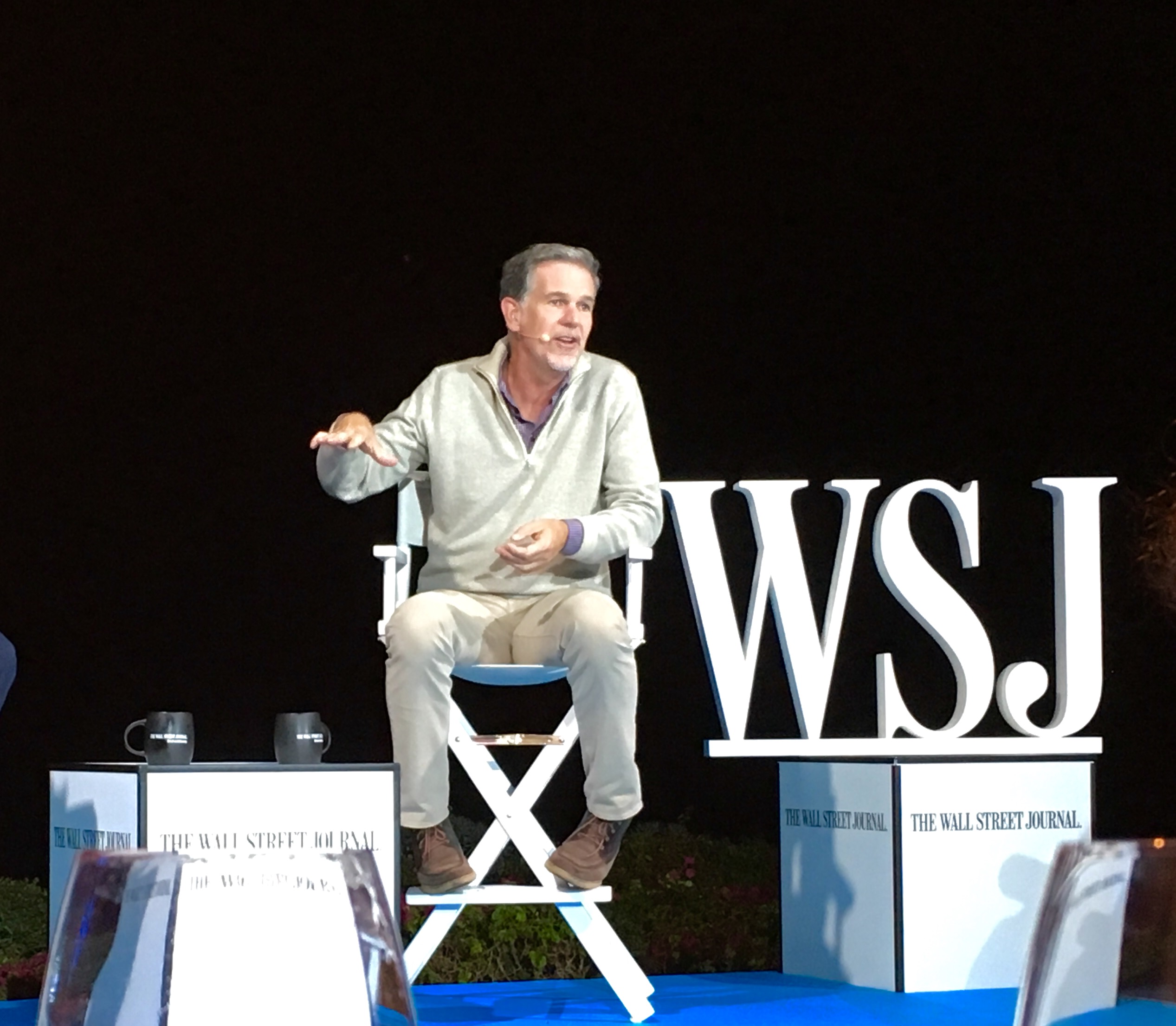Reed Hastings: Building Netflix, Breaking Boundaries
In the vast landscape of American entrepreneurship, few stories are as compelling as that of Reed Hastings, the co-founder of Netflix. His journey from a mathematics teacher to becoming one of the most influential figures in entertainment history is not just a tale of success, but a masterclass in adaptability, vision and resilience.
Born on October 8, 1960, in Boston, Massachusetts, Hastings' early life was marked by privilege and education. He attended Bowdoin College, graduating in 1983 with a bachelor's degree in mathematics. However, instead of pursuing a traditional career path, his first professional venture took him to Swaziland (now Eswatini), where he spent two years teaching mathematics as a Peace Corps volunteer. This experience, as he would later recall, taught him valuable lessons about taking risks and embracing challenges – lessons that would prove invaluable in his future endeavours.
Upon returning to the United States, Hastings pursued his master's degree in computer science at Stanford University, graduating in 1988. His first major entrepreneurial venture came in 1991 when he founded Pure Software, a company that developed tools for software developers. The company grew rapidly, perhaps too rapidly for the young entrepreneur. By his own admission, managing Pure Software's explosive growth was a challenging experience that taught him crucial lessons about leadership and organizational management. The company went public in 1995 and later merged with Atria Software in 1996, before being acquired by Rational Software in 1997.
But the story that would change the entertainment industry forever began with a simple late fee. In 1997, Hastings found himself owing $40 to Blockbuster for an overdue copy of "Apollo 13". This seemingly minor inconvenience sparked an idea that would eventually revolutionize how the world consumes entertainment. While this origin story has been debated, with Hastings later acknowledging it was more of a simplified explanation than literal truth, it effectively captures the essence of the problem Netflix would solve.
In 1997, Hastings and Marc Randolph co-founded Netflix, initially as a DVD-by-mail rental service. The company's first business model was simple: customers could rent DVDs online and receive them through the mail. In 1999, Netflix introduced its monthly subscription concept, allowing customers to rent unlimited DVDs for a fixed monthly fee – a radical departure from the traditional per-rental model used by Blockbuster and other video rental stores.
The early years were challenging. By 2000, Hastings attempted to sell Netflix to Blockbuster for $50 million, but Blockbuster declined – a decision that would later be considered one of the biggest missed opportunities in business history. Instead of being discouraged, Hastings continued to innovate. Netflix went public in 2002, with shares initially priced at $15. Today, despite market fluctuations, Netflix shares have generated returns that have made early investors very wealthy.
The real genius of Hastings' leadership became apparent in 2007 when Netflix launched its streaming service. This move wasn't just an addition to their existing business; it was a complete transformation that would eventually make their original DVD-by-mail service obsolete. This decision demonstrated one of Hastings' most remarkable qualities as a leader: the willingness to disrupt his own successful business model before someone else did.
Under Hastings' leadership, Netflix began producing original content in 2013 with "House of Cards". This move transformed Netflix from a content distributor to a content creator, putting it in direct competition with traditional entertainment studios. The success was immediate and significant. "House of Cards" went on to win three Primetime Emmy Awards, making Netflix the first streaming service to win such prestigious recognition.
Hastings' management philosophy has been equally revolutionary. Netflix's corporate culture, detailed in the famous "Culture Deck" released in 2009, emphasizes freedom and responsibility. The company became known for its unique policies, including unlimited vacation time, no formal expense reporting and a focus on high performance over process. This approach has influenced numerous other companies and become a case study in modern management practices.
In January 2023, Hastings stepped down as CEO of Netflix, transitioning to the role of executive chairman. During his tenure, he had transformed not just a company, but an entire industry. His leadership style, characterized by bold decision-making and a willingness to embrace change, has become a blueprint for modern entrepreneurs.
Reed Hastings' journey offers numerous valuable lessons. It highlights the importance of adapting to changing technologies and consumer preferences, demonstrating how staying ahead of trends can define success. His courage to disrupt his own successful business model underscores the necessity of innovation and resilience in the face of evolving markets. Hastings' story also emphasizes the value of learning from failures and using them as stepping stones for growth. Additionally, he exemplifies the significance of building a strong corporate culture as a foundation for sustained success. Finally, his focus on long-term thinking and strategic patience showcases the power of vision in achieving transformative results.
What makes Hastings' story particularly inspiring is his ability to see beyond immediate success. When Netflix was thriving as a DVD-by-mail service, he pushed for streaming. When streaming was successful, he pushed into original content. Each transition was risky, but each proved crucial to the company's long-term success.
Hastings has also been a significant philanthropist, particularly in education. He has donated millions to educational causes and served on the California State Board of Education. His interest in education reform reflects his belief in the power of innovation to solve complex problems, whether in business or society at large.
"If the Starbucks secret is a smile when you get your latte... ours is that the Web site adapts to the individual's taste." - Reed Hastings, American Entrepreneur
As we look at the entertainment landscape today, it's hard to imagine a world without streaming services. Netflix, under Hastings' leadership, didn't just adapt to change – it created change. The company transformed how we consume entertainment, influenced corporate culture and demonstrated the power of innovative thinking in business.
To sum up, Reed Hastings' journey from being a math teacher to a tech leader shows the importance of having a clear vision, staying flexible and being persistent. His story teaches us that real innovation often comes from improving existing solutions rather than creating entirely new ones. As the entertainment industry keeps changing, the key lessons from Hastings' success – accepting change, planning for the future and continuing to innovate – are as important as ever.
The future of entertainment may be uncertain, but one thing is clear: Reed Hastings' impact on how we consume content will be felt for generations to come. His legacy isn't just Netflix; it's the demonstration that with the right vision and courage to execute, one person can fundamentally change how millions of people around the world experience entertainment.
More Stories You May Like



